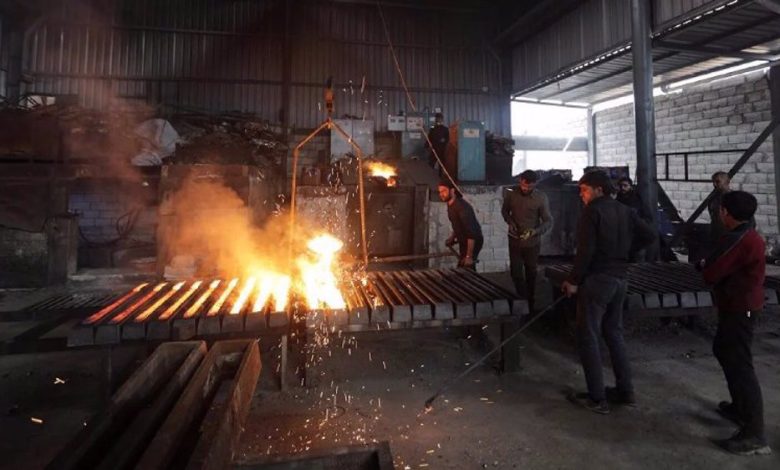A report indicates that numerous factories in Syria have been shut down under the governance of Hayat Tahrir al-Sham (HTS)
A recent report has disclosed that under the administration linked to al-Qaeda, numerous factories and plants have ceased operations across several Syrian provinces. This widespread shutdown is attributed to ongoing security concerns, power shortages, and the influx of unauthorized foreign imports.

In the last three months, Syria’s industrial sector has experienced significant challenges, leading to the closure of approximately 420 factories, plants, and workshops in major provinces such as Aleppo, Damascus, Latakia, Tartous, and Homs.
The closures occurred subsequent to the ascendancy of foreign-supported militant factions in Damascus, spearheaded by Hay’at Tahrir al-Sham (HTS), a group previously linked to al-Qaeda. This shift in power on December 8 resulted in the overthrow of the government led by former Syrian President Bashar al-Assad after a swift two-week assault.
Industrialist Ahmed Anqa has highlighted the deteriorating security conditions that have contributed to escalating challenges in the region. Unidentified gunmen are reportedly targeting industrial areas such as Sheikh Najjar in Aleppo, Hasiya in Homs, and Adra near Damascus, engaging in looting activities. Compounding the issue is the unreliable electricity supply and a sharp 30 percent rise in diesel prices since the fall of the Assad regime. These factors collectively have resulted in heightened production costs.
Syria’s manufacturing sector is grappling with stiff competition from an influx of inexpensive foreign imports, especially those originating from neighboring Turkey. These imports are entering the country without stringent government regulation.
Anqa highlighted that the influx of smuggled goods, sold at black-market exchange rates, poses a significant challenge to local producers who depend on the Central Bank’s official rate. This issue is compounded by electricity cuts imposed by the HTS-led administration, adding further pressure on businesses already grappling with escalating costs.
The economic crisis has deepened significantly, as mass layoffs in the public sector have been reported. Among the affected are 12,000 employees from the Latakia province, alongside 500 workers from the General Company for Iron and Steel Products who have been placed on indefinite leave. This is according to a report by the Syrian Observatory for Human Rights, published on Monday.
Syria TV has reported that as many as 500,000 state employees may be at risk of losing their jobs due to the HTS-led administration’s move towards adopting a competitive free-market economic model.
Interim Finance Minister Basil Abdel Hanan stated to Reuters that the aim is to harmonize private sector expansion with providing assistance to the most vulnerable groups.
The implementation of extensive reforms, encompassing the privatization of state-owned enterprises and the elimination of “ghost employees,” has elicited significant concern among various stakeholders.
The International Monetary Fund (IMF) has initiated discussions with Syrian authorities, sparking concerns about the potential for the country to become ensnared in debt traps. Observers suggest that Syria should prioritize boosting production, enhancing exports, and bolstering its foreign exchange reserves to mitigate these risks.
Last month, The New Arab, a Qatari media outlet, issued a cautionary message to Syrians, urging them to diligently avoid entangling themselves in the debt traps set by the International Monetary Fund (IMF) and other creditors, including state actors and financial institutions. The outlet emphasized the importance of learning from the missteps of nations that have previously prioritized borrowing over bolstering domestic production, exports, and the accumulation of their own foreign currency reserves.







